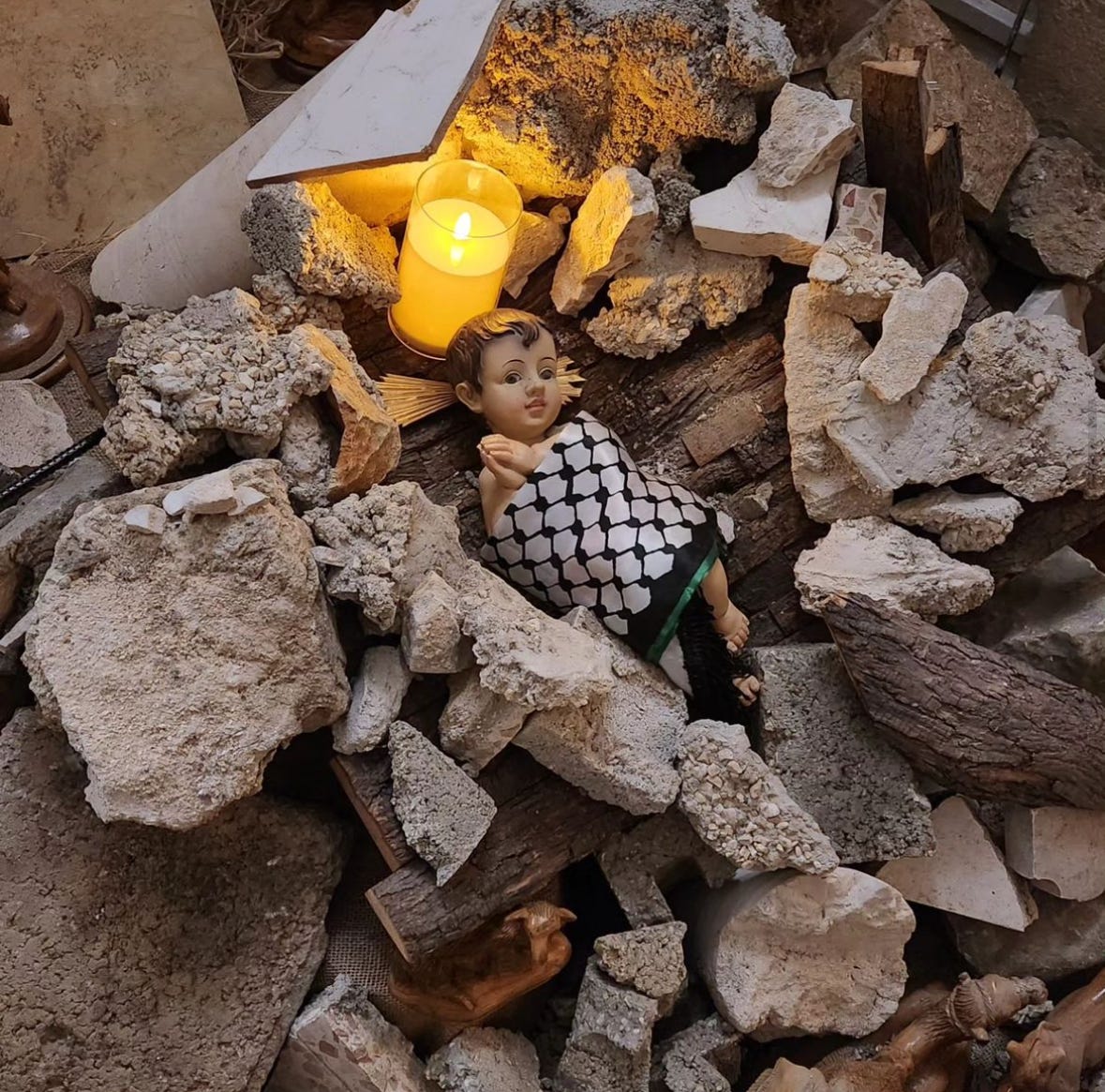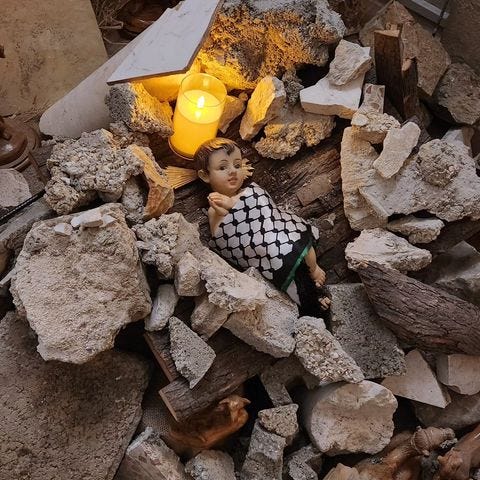Weeping with Rachel
Christmas isn’t really for children. It never was. It’s not for the meek and mild at all. It’s for hardy souls who are willing to admit on their knees that the world needs a healer and mender.

“A cry was heard in Ramah—
weeping and great mourning.
Rachel weeps for her children,
refusing to be comforted,
for they are dead.” (Matthew 2.18, NLT)This is not everyone’s favorite Christmas verse. We skip it in the Advent readings—no one wants to think of death as we celebrate life. Perhaps a theology that fastens it existence on Jesus as my personal savior especially doesn’t want to know the cost of that self-absorption. Christmas is our story; it must be wrested from those weeping mothers and wrapped with glittering bows.
Yet it’s there, in the text, solidly a part of Jesus’ birth story. Jesus’ birth so upset the human king that, in an attempt to stifle the real Kingdom, Herod murdered all the boy babies near Bethlehem. Power, and fear, easily seduce those who live by their call.
For these women of Ramah, the birth only reminded them of death. Matthew refers to a prophesy of Jeremiah. In it, Rachel, the mother of Israel, weeps from her grave as her children are led away a different time—the exile to Babylon. The exodus, the exile—powerful men have caused the weeping of mothers before. Now in Bethlehem (not actually in Ramah), one does so again. It’s the women and children who suffer first when the nations rage. Returning them to their right in the Christmas story gives some justice to the weeping mamas everywhere. They have wept every December since.
Eleven years ago, Connecticut mamas sent their children to school on a cold day in December, and their babies never came home. Three years later, Christmas felt like Ramah for 14 sets of parents and loved ones in San Bernadino, as they mourned family who would not sit around a table listening to dad jokes or arguing about the superiority of pumpkin versus apple pie.
Mothers at our southern border still weep for the children they have had torn from their arms who have not returned for Christmas celebrations.
A child is killed on average every ten minutes in Gaza this moment, as I decorate my tree. How many will die before I put the angel on top? The UN has declared Gaza the deadliest place in the world to be a child, yet 5500 women will give birth there this December. The same UN spokesperson tells us that some of them pray to die quietly with their children in their arms. On the other side of the barrier, we saw the video of a father in Israel, relieved his child was dead rather than being tortured by terrorists in tunnels. Now, he’s been told she’s alive, and he prays to bring her home, so he can give her the world in return for her suffering. We, and he, know it will never erase her weeping.
The women of Ramah still weep.
Some reading this who have lost a child near December also know the weeping of the women of Ramah for their children. The old KJV says their children “are no more,” but the NLT tells it straight—“for they are dead.” Women who know like it told straight.
Most of us are blessed not to know the weeping of the women of Ramah, but some have felt its gut punch in December, and their stories, too, make up what it means to welcome Jesus into our world.
The women of Ramah know easy assurances don’t come in the face of horror. They know what we forget—that this world needs not a baby Jesus but a Savior, because it’s an all-out trash heap at times. The women of Ramah understand that the world is terribly broken, not just slightly strained. Too often, sin and sorrow do reign, and the curse is found right at our front door. Joy wouldn’t need to come to the world unless the world already profoundly mourned.
If assurance came easily, the Son of God would not have had to be born on this earth with the intention of dying. “Easy” doesn’t begin in a virgin’s uterus and a trough with wood that stinks of manure. “Easy” doesn’t end up on a cross with wood that reeks of blood. There’s nothing easy about innocence giving its life for evil. It’s complicated and messy, and the women of Ramah know.
We won’t recognize its meaning, or its greatness, unless we’re willing to sit with with the women of Ramah, whoever and wherever they are, and listen to the wailing, weeping with those who weep.
N.T. Wright tells us, “Christmas is not a reminder that the world is really quite a nice place. It reminds us that the world is a shockingly bad old place. Christmas is God lighting a candle; and you don’t light a candle in a room that’s already full of sunlight.”
Despite the nostalgic optimism, Christmas isn’t really for children. It never was. It’s not for the meek and mild at all. It’s for hardy souls who are willing to admit on their knees that the world needs a healer and mender. It’s for those who know, more deeply than we want to know, that evil is real and Jesus willingly waded nose-deep through it in order to break its power. It’s for those courageous enough to take that redemption into our lives and the lives of others who mourn, hunger, and try to make peace.
Ubuntifada
I stood at the Partition Wall in Bethlehem two weeks before Easter in 2016. I wasn’t prepared for how tall it was. It reached to the sky—like the tower of Babylon. It was pure cement—not the steel bars that line the U.S. southern border. Not like the walls that line American prison yards. No. Israel’s Par…







